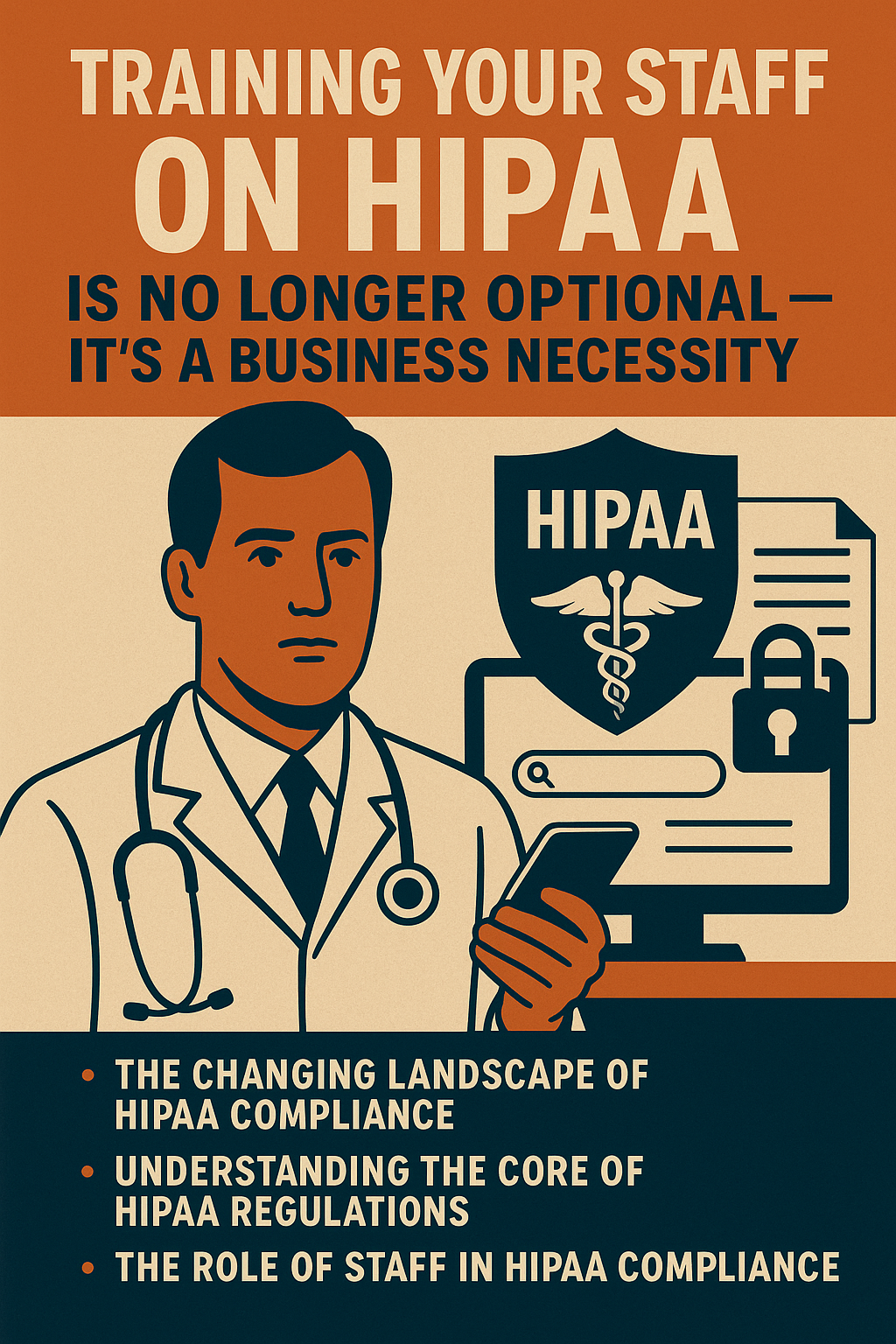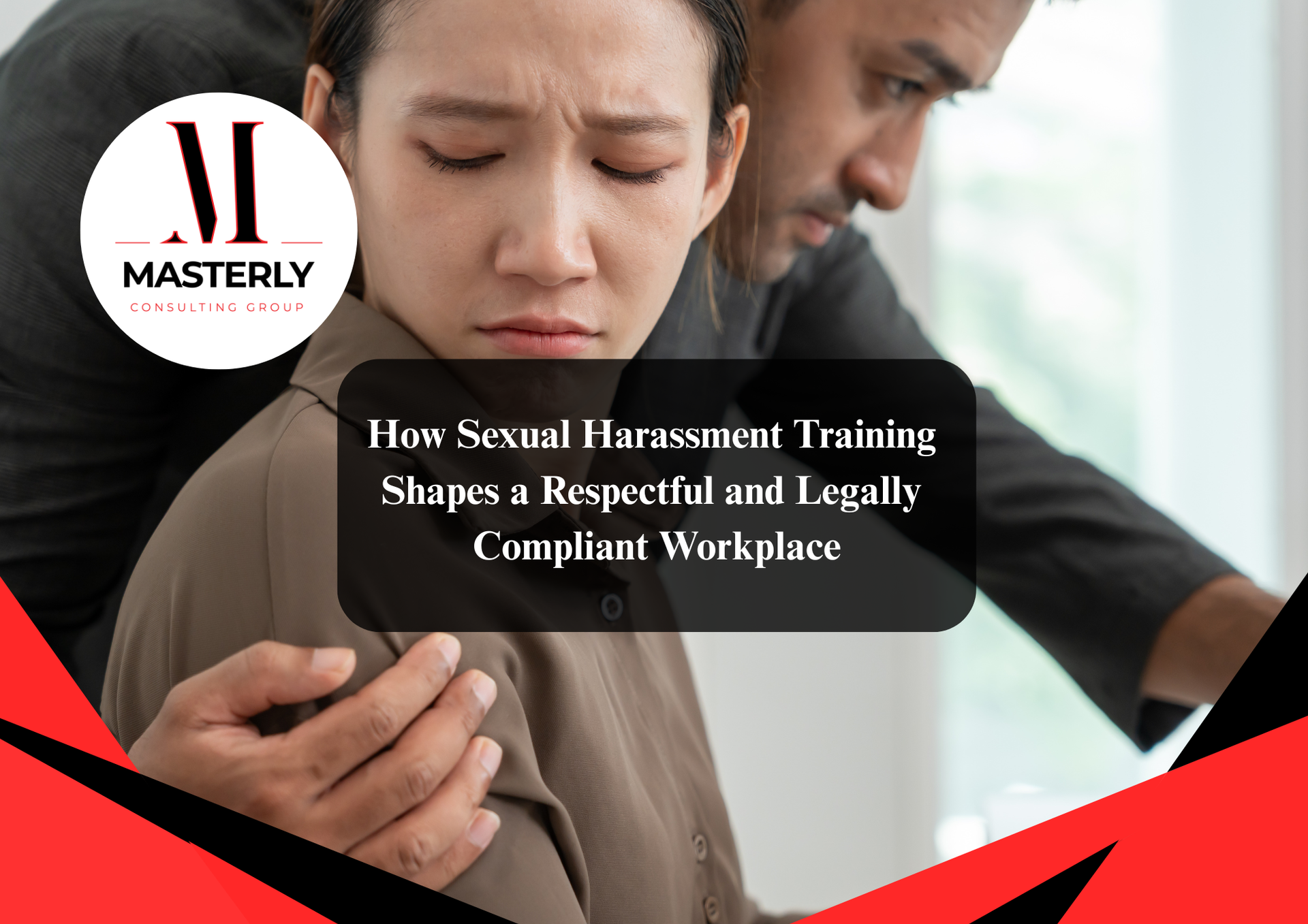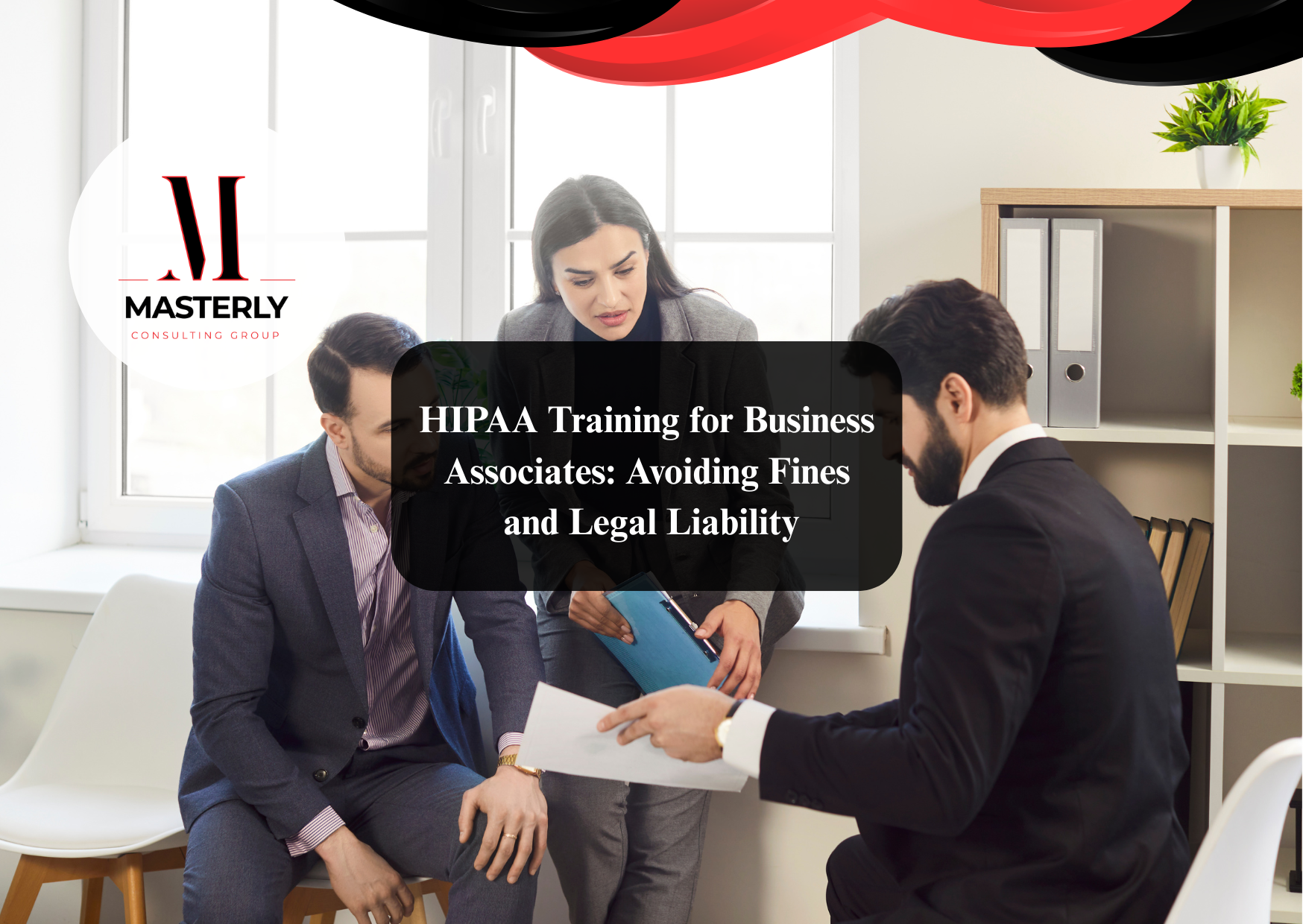Training Your Staff on HIPAA Is No Longer Optional — It's a Business Necessity
The Changing Landscape of HIPAA Compliance
The Health Insurance Portability and Accountability Act (HIPAA) stands as a critical standard for protecting patient privacy and ensuring health information security. In today’s rapidly evolving healthcare industry, training your team on HIPAA requirements is no longer a suggestion—it’s an absolute necessity. With new threats to protected health information (PHI) and increased scrutiny from the Department of Health and Human Services, failing to deliver proper HIPAA staff training can lead to serious consequences. To thrive in healthcare, organizations must embed HIPAA training into their operations.
Understanding the Core of HIPAA Regulations
HIPAA was initially introduced to improve the portability and accountability of health coverage while safeguarding personal healthcare information. Today, the rules are broader, covering areas such as the HIPAA Privacy Rule, the HIPAA Security Rule, and the Breach Notification Rules. These regulations impact healthcare providers, healthcare clearinghouses, health plans, and business associates alike. Having a team that understands these key regulations is essential for compliance.
The Role of Staff in HIPAA Compliance
Every employee handling patient data becomes part of your organization's HIPAA compliance strategy. Without extensive experience and employee training, even small mistakes can cause major data breaches. Staff must be well-versed in identifying risks to personal health information and applying administrative requirements and physical safeguards.
Why Proper HIPAA Training Protects Your Organization
HIPAA compliance goes beyond meeting basic legal standards. Training protects your organization's reputation, maintains patient trust, and minimizes the risk of costly fines. With the right training materials, staff can recognize security threats and respond quickly to protect private health information.
Covered Entities and Business Associates: Who Needs Training?
HIPAA mandates that both covered entities and their business associates provide HIPAA compliance training to all employees handling healthcare information. Training ensures that both internal teams and third-party vendors are compliant with HIPAA privacy and security standards.
The HIPAA Privacy Rule: Protecting Patient Information
The HIPAA Privacy Rule sets national standards for safeguarding patient information. Employees must understand how to manage authorization forms, patient rights, and the permitted uses of health information. Without training, organizations risk unauthorized disclosures that could trigger compliance investigations.
The HIPAA Security Rule: Safeguarding Electronic Data
The HIPAA Security Rule focuses on protecting electronic health records and other digital formats of healthcare information. Staff training should emphasize data security, access control, encryption, and other technical safeguards. Every team must understand how to defend healthcare plans and patient files from cyber threats.
Breach Notification Rules and Response Protocols
If a breach occurs, breach notification rules require timely disclosure to affected individuals, health and human services, and sometimes the media. Staff must be trained to immediately report suspected breaches and follow correct notification procedures.
Risks of Noncompliance: Data Breaches and Fines
The risks of neglecting HIPAA training are significant. Data breaches can lead to substantial civil penalties, lawsuits, and damage to organizational credibility. The Hitech Act and American Recovery and Reinvestment Act increased penalties for noncompliance, making successful completion of staff training even more vital.
HIPAA Training Must Be Continuous
HIPAA training is not a one-time event. As new threats and regulations emerge, organizations must offer ongoing sessions, updates, and refresher courses. Providing a self-paced online course allows staff to learn at their own pace, ensuring retention and compliance.
Tailoring Training Materials for Maximum Impact
Effective HIPAA training programs use engaging training materials tailored to different roles within the organization. Administrative staff, nurses, IT teams, and executives all have unique responsibilities under HIPAA. Customized approaches improve understanding and reduce compliance risks.
The Essential Role of a HIPAA Privacy Officer
Every covered entity should designate a HIPAA Privacy Officer responsible for overseeing HIPAA privacy policies, training, and compliance initiatives. This officer ensures that written policies align with state privacy laws, the privacy rule, and the security rule.
The Vital Position of the HIPAA Security Officer
Similarly, a HIPAA Security Officer is critical for developing strategies to protect electronic health records and manage technical safeguards. This officer also oversees risk analysis, risk assessments, and IT security measures.
Business Associate Agreements: Training Beyond Your Walls
Any third party accessing patient privacy or healthcare information must sign a business associate agreement and receive appropriate training. Healthcare organizations must verify that their partners understand HIPAA obligations.
HIPAA Compliance for Nursing Homes and Smaller Providers
Smaller healthcare providers and nursing homes are not exempt from HIPAA compliance. Staff must still undergo training to properly handle medical records and private health information. Smaller organizations often face steeper penalties because they lack resources to manage breaches effectively.
Security Measures Required by HIPAA
HIPAA outlines specific security measures such as authentication protocols, access controls, and physical security for paper files. Employees need to understand their role in maintaining compliance and protecting healthcare organizations from vulnerabilities.
Healthcare Organizations Must Lead with Training
Leadership must prioritize HIPAA staff training to ensure a culture of compliance across the organization. Mandating training across all departments demonstrates a commitment to healthcare information privacy and civil rights.
Omnibus Rule and Expanded Training Requirements
The Omnibus Rule expanded HIPAA’s reach and made training requirements stricter. Now, all employees who have access to patient information must understand enhanced patient rights, new breach rules, and updated compliance standards.
Written Policies and Successful Compliance
Having written policies is not enough if employees are unaware of them. Training programs must ensure that staff not only acknowledge these policies but understand how to apply them during daily operations.
Risk Assessments: The Foundation of HIPAA Compliance
Frequent risk assessments are necessary to uncover vulnerabilities in security practices and processes. Staff training plays a vital role in equipping teams to recognize risks, report incidents, and support risk analysis initiatives.

Building a Culture of Compliance
True HIPAA compliance is not achieved with paperwork alone—it requires a culture where every employee is committed to protecting patient data and upholding privacy rights. Training creates a shared understanding of these obligations.
Online Training Options for Maximum Flexibility
Offering a self-paced online course makes it easier for employees to fit HIPAA training into their schedules. This method also allows organizations to track participation and ensure successful completion across departments.
HIPAA Training and State Privacy Laws
Beyond federal requirements, states have additional state privacy laws. Effective HIPAA training must cover both federal and state regulations to provide full protection.
Protecting Healthcare Organizations from Legal Liability
Organizations without proper training programs leave themselves vulnerable to lawsuits, civil rights complaints, and government investigations. Proactive HIPAA training mitigates these risks significantly.
Addressing the Unique Needs of Business Associates
Business associates face the same HIPAA scrutiny as covered entities. Proper HIPAA training ensures that third-party vendors uphold the same privacy and security standards as your internal teams.
HIPAA Staff Training Enhances Patient Trust
Patients expect healthcare organizations to safeguard their personal health information. Visible commitment to HIPAA compliance through training builds stronger patient relationships and reinforces loyalty.
Investing in HIPAA Training Is Investing in Your Future
The healthcare sector is moving toward greater transparency, patient rights, and data protection. Organizations that prioritize HIPAA training today will be better positioned for tomorrow’s challenges and opportunities.
Strengthening Healthcare Operations Through Staff Training on HIPAA Compliance
Understanding and applying HIPAA rules is crucial for all health care providers, healthcare organizations, and other covered entities operating today. As health information technology advances, so do the risks associated with mishandling sensitive patient data. Staff must be fully trained to uphold health information privacy standards and avoid unintentional breaches that could lead to severe penalties. Proper HIPAA staff training not only ensures compliance but also builds a culture of accountability, safeguarding patient trust and protecting the long-term success of your healthcare business.
Masterly Consulting Group: Your Trusted Partner in HIPAA Staff Training
At Masterly Consulting Group, we understand that HIPAA compliance is more than a box to check—it’s a vital part of your organization’s success. Our HIPAA staff training programs offer detailed, easy-to-understand content tailored to your team's specific roles and responsibilities. We ensure your staff members receive thorough, up-to-date guidance on handling healthcare information securely and professionally.
Contact us at (888) 209-4055 to schedule a free consultation and learn how we can help your organization stay HIPAA compliant, protect patient trust, and avoid costly penalties.








